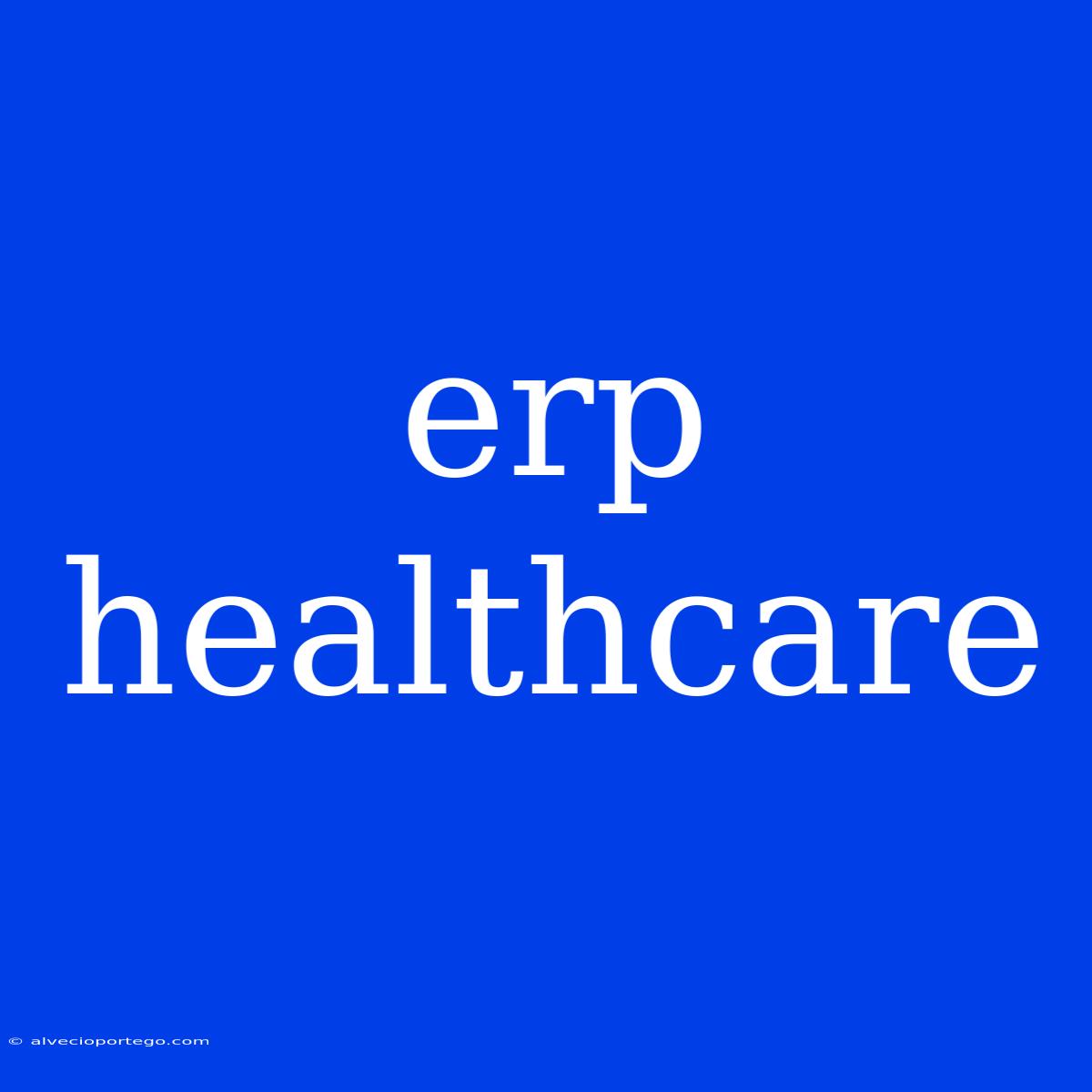The Power of ERP in Healthcare: Streamlining Operations and Improving Patient Care
The healthcare industry is constantly evolving, facing increasing pressure to deliver high-quality care while managing costs effectively. Enterprise Resource Planning (ERP) systems are proving to be a powerful tool for healthcare providers to achieve these goals.
What is ERP for Healthcare?
ERP for healthcare is a comprehensive software solution that integrates various aspects of a healthcare organization's operations, including:
- Financial Management: Accounts payable, accounts receivable, budgeting, and reporting.
- Human Resources: Payroll, benefits, talent management, and time tracking.
- Supply Chain Management: Procurement, inventory management, and distribution.
- Patient Management: Patient records, scheduling, billing, and insurance claims processing.
- Clinical Operations: Electronic health records (EHR), lab management, and medication dispensing.
Key Benefits of ERP in Healthcare:
1. Improved Efficiency and Productivity:
- Centralized data: ERP systems provide a single source of truth for all data, eliminating redundancy and improving data accuracy.
- Automated processes: Automating routine tasks like scheduling and billing frees up staff time for more important tasks like patient care.
- Real-time insights: Access to real-time data enables informed decision-making and proactive management of resources.
2. Enhanced Patient Care:
- Better communication: Improved data sharing among departments leads to more effective communication between healthcare providers, resulting in better patient care.
- Personalized care: ERP systems can facilitate personalized care by providing insights into individual patient histories and preferences.
- Reduced errors: Automating tasks and centralizing data helps reduce errors in patient records, medication dispensing, and billing.
3. Cost Savings and Revenue Optimization:
- Streamlined operations: ERP systems improve efficiency, leading to reduced operational costs.
- Improved revenue cycle: Automated billing and insurance claim processing streamline the revenue cycle, leading to quicker payments.
- Inventory optimization: ERP helps manage inventory effectively, reducing waste and lowering costs.
4. Enhanced Compliance and Security:
- Regulatory compliance: ERP systems assist in meeting regulatory requirements, such as HIPAA, by ensuring data security and privacy.
- Improved security: Secure access controls and data encryption protect sensitive patient information.
Choosing the Right ERP System:
- Assess specific needs: Carefully consider the specific needs of your organization, including size, complexity, and budget.
- Research options: Evaluate different ERP vendors and their solutions to find the best fit.
- Seek expert advice: Consult with industry experts and other healthcare providers who have implemented ERP systems.
Conclusion:
Implementing an ERP system can be a significant investment, but it offers numerous benefits that can help healthcare organizations improve efficiency, enhance patient care, and achieve greater financial stability. As the healthcare industry continues to evolve, ERP systems will play an increasingly critical role in ensuring providers can deliver high-quality care in a rapidly changing landscape.

